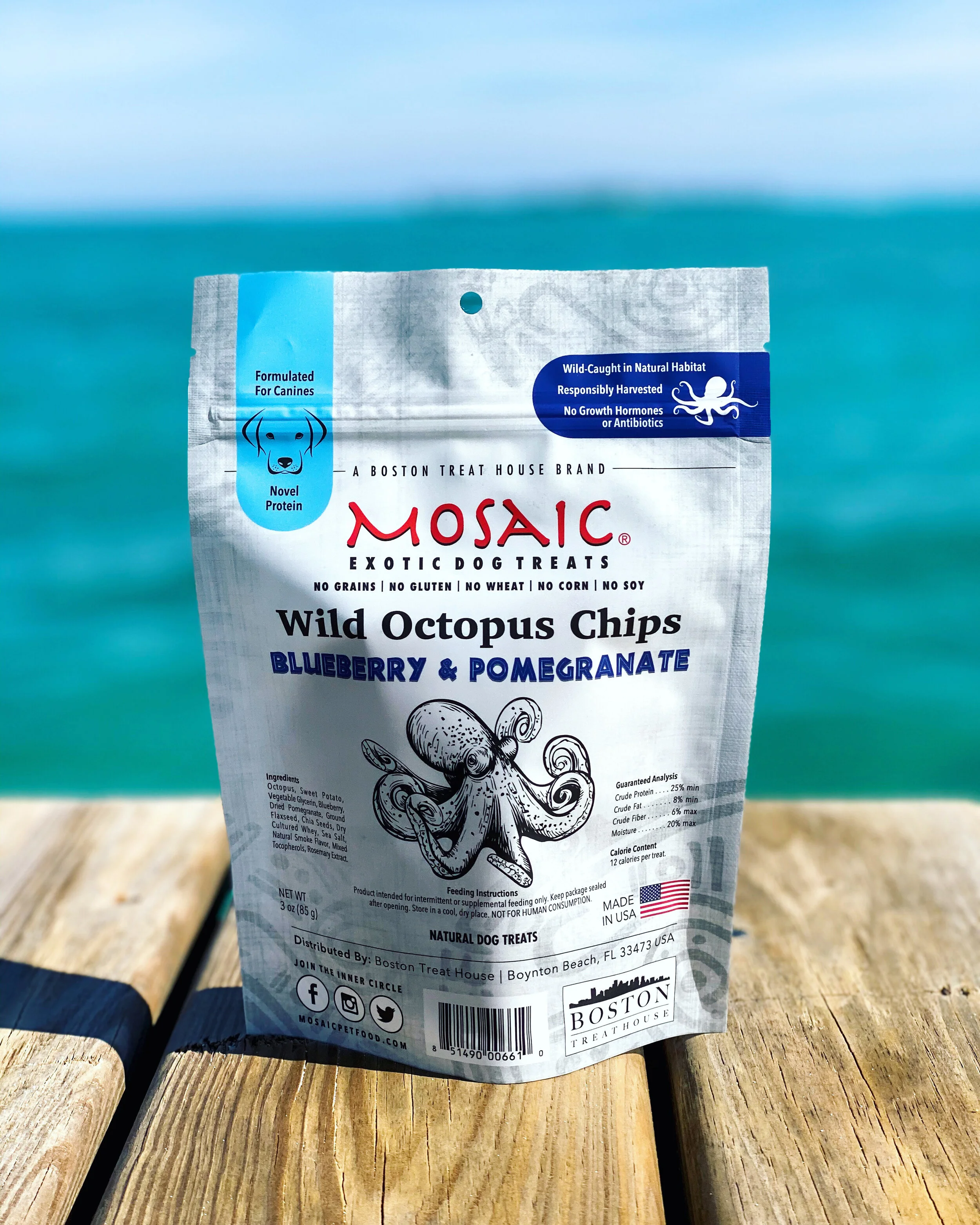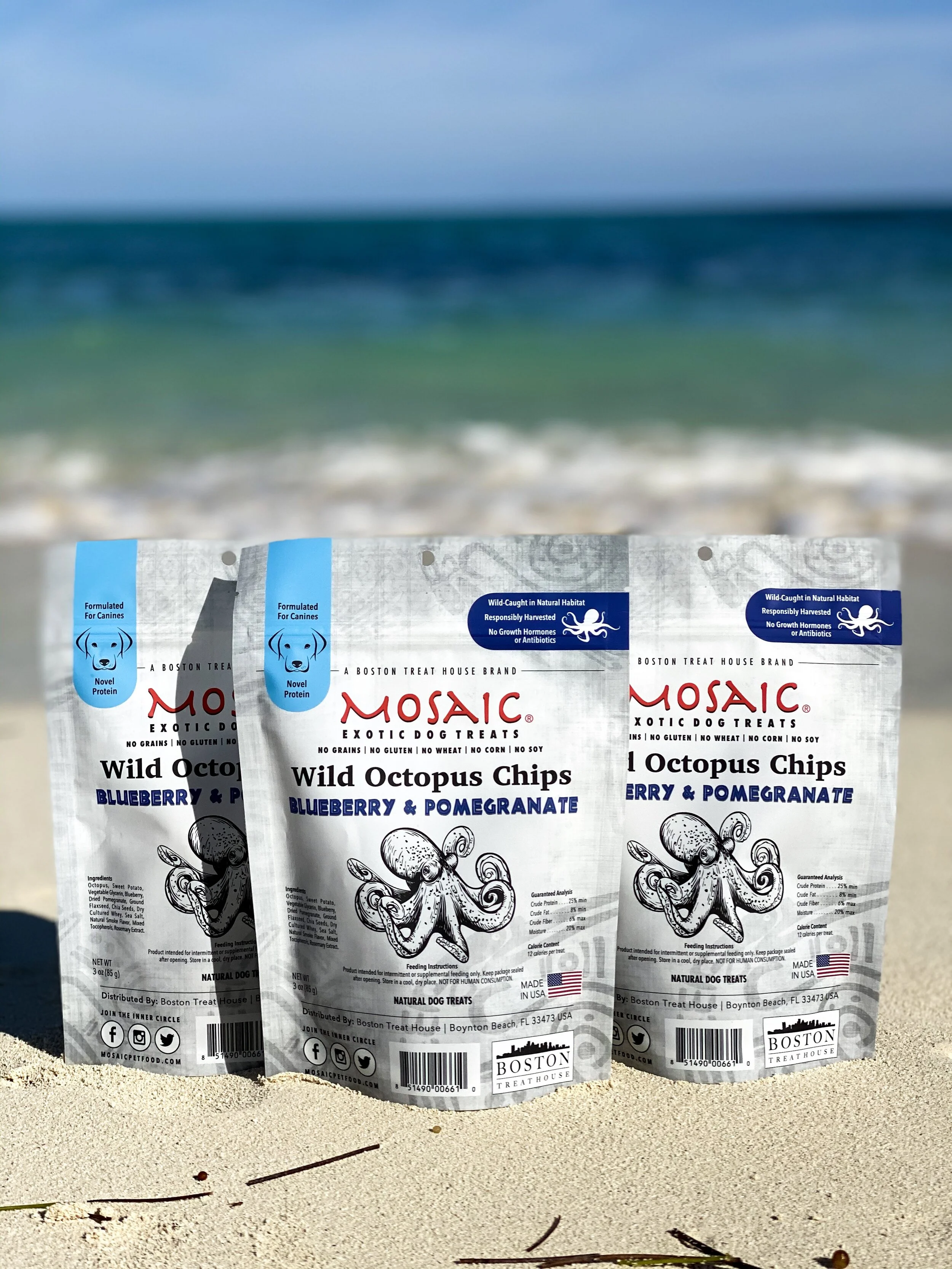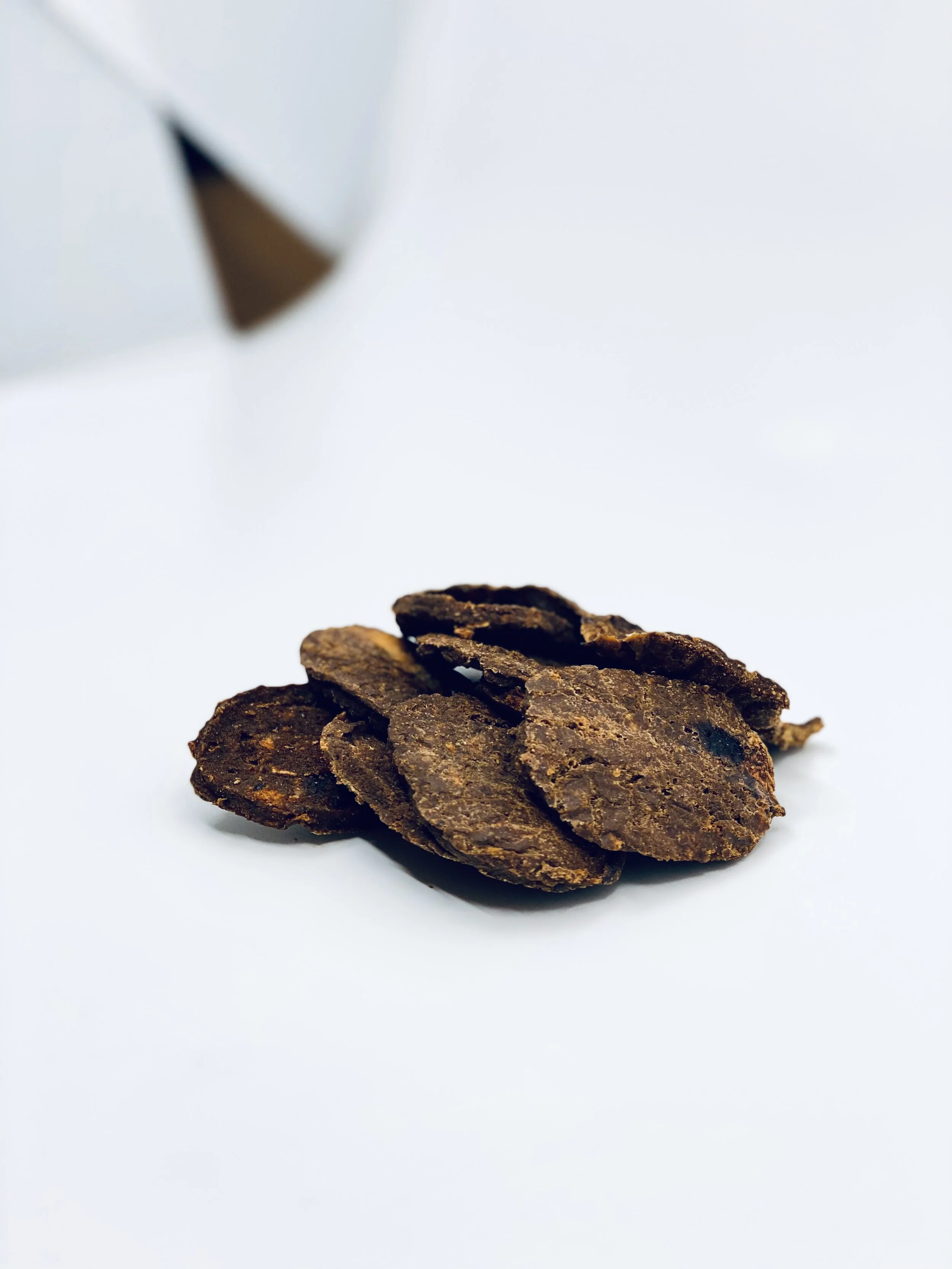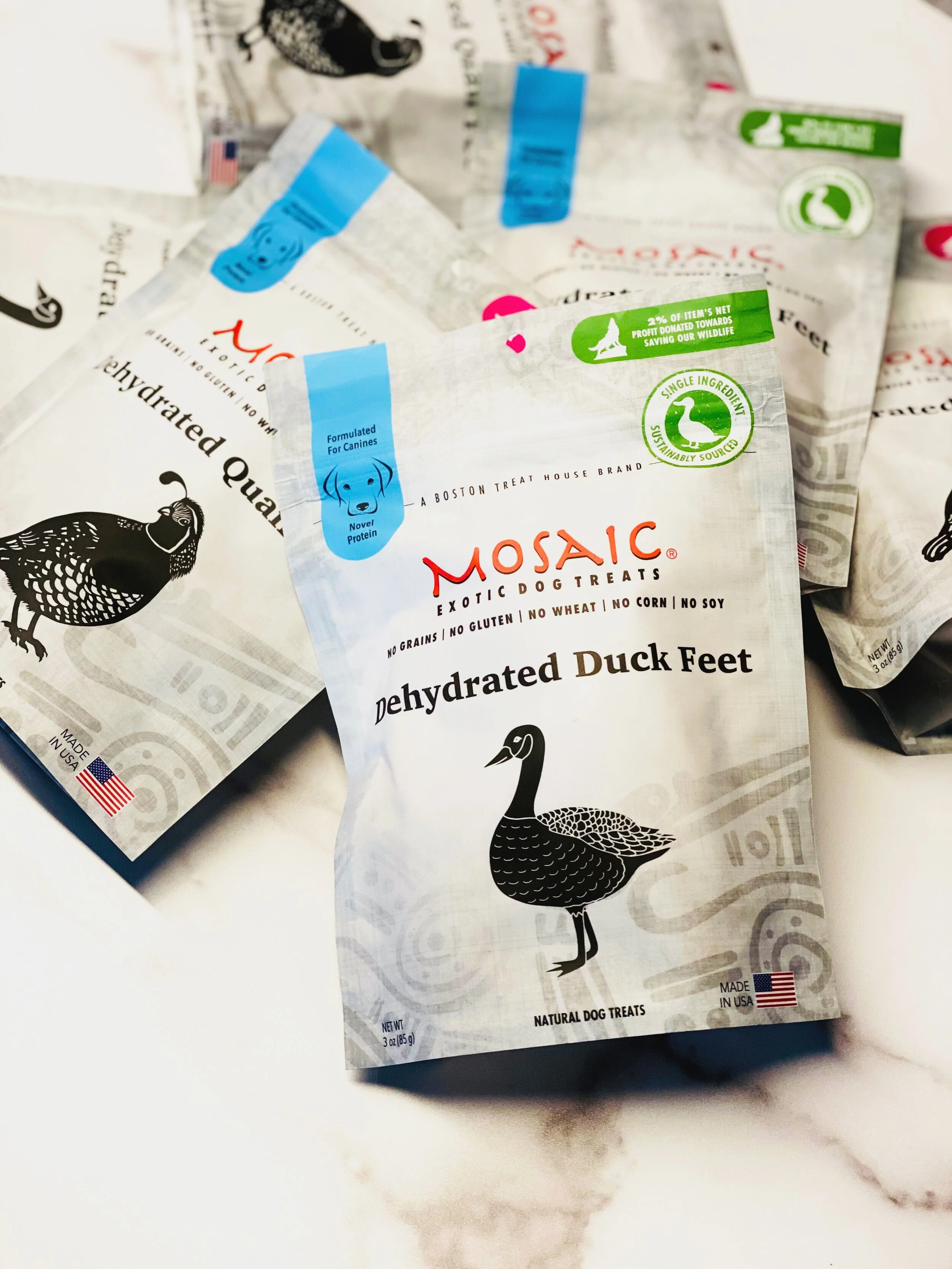Does your dog suffer from food allergies?
A food allergy is simply the individual dog’s immune system over-reacting to a normal dietary ingredient, thus causing adverse symptoms that may be skin-related with increased inflammation of the skin.
It may also cause increased gastrointestinal upset, such as increased bowel movements per day, vomiting and diarrhea.
Common food allergens in dogs are documented to be the commonly fed proteins in diets, such as chicken, beef, pork, dairy, common fish, lamb, wheat, corn, soy, grains, gluten and eggs.
Searching for the Solution
When finding an alternative protein for your dog, the protein source should ideally be novel (new protein i.e. never have been eaten by the pet before) or should be hydrolyzed (protein molecules are small enough to minimize chance of an allergic reaction).
Examples of novel proteins may include Bison, Water Buffalo, Wild Boar, Venison, Rabbit, Elk, Quail, Goat and Turkey.
Novel proteins are hypoallergenic, and offer other nutritional benefits, such as a higher protein content, a lower fat content, a low calorie content, more essential vitamins & minerals, and a higher omega-3 fatty acid content, when compared to common proteins.
Double Check the Ingredients
Please be aware when searching for a novel protein. Most dog food and treat brands that offer novel proteins soon realize how expensive it is to deal with such unique animals. To bring down the cost of their dog food or treats, they will add secondary proteins to their ingredients. However, usually that secondary protein is a common protein, as common proteins are inexpensive to use.
For example, you may find a brand of dog treats where the primary protein is ‘bison’. But when you look at the ingredients, ‘beef’ is added to the treats, so the manufacturer can use less bison and make more money on their end.
In this case, if your veterinarian recommended you to switch your dog to a novel protein diet, due to a food allergy to beef, then these bison “novel” treats will not be of any good use to your dog.
Many pet food and treat manufacturers are misleading when it comes to novel proteins, so please be aware of all ingredients that are in the food or treats if your pet suffers from food allergies to common proteins.
Trust In Mosaic
Mosaic is the number one industry leading dog treat brand for USA-Sourced Exotic Proteins. Our Exotic Proteins include USA Ostrich, USA Alligator, Wild-Caught Octopus, and many others!
Mosaic is one of the most trusted consumables brands throughout the global pet industry, especially when it comes to the exotic & novel protein sector. To serve a greater purpose for the future of animal health & wellness, we took an oath to never use the byproducts of any common proteins, such as chicken, beef, pork, lamb and other common proteins, in any of our Mosaic consumables.
Our exotic proteins are pioneering the novel protein sector for the global pet industry. We only use the most trusted USDA-Certified sources and best practices when responsibly harvesting the unique animals.
As the Mosaic brand grows, we are increasing the population of these exotic animals, and giving back to several major causes to help change the world for the better.
1 in 5 Dogs Suffer from Food Allergies
According to Veterinarians, twenty percent of dogs suffer from food allergies to common proteins, such as chicken, beef, pork, dairy, common fish, lamb, wheat, corn, soy, grains, gluten and eggs.
Fifty percent of dogs start seeing clinical signs before reaching twelve months of age.
Thirty one percent of dogs show gastrointestinal symptoms (soft stools, mucus in stools, flatulence).
Forty three percent of dogs show skin & coat disorders, such a pruritus.
Thirty three percent of dogs diagnosed with Allergic Disease also suffer from food allergies.
Dogs affected by Food Allergies
Common Food Allergens in Dogs
Symptoms of Food Allergies in Pets

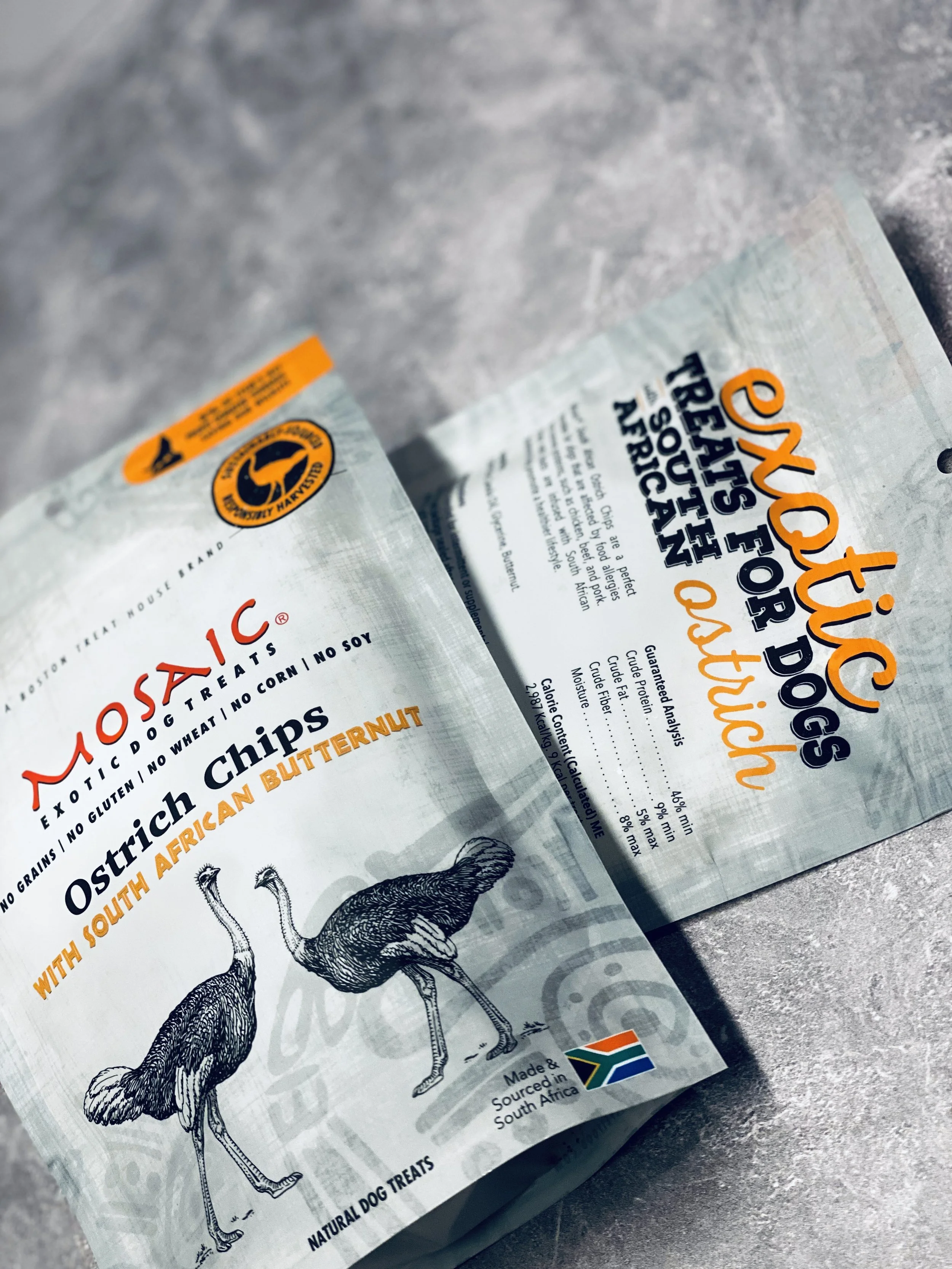

12 Weeks
In a professional diet trial, ninety percent of dogs with food allergies to common proteins showed less or no food sensitivity symptoms after being fed novel proteins for a duration of eight weeks.
The remaining ten percent of dogs in the trial showed less or no food sensitivity symptoms after being fed novel proteins for an additional four weeks.
Novel Protein Diet Trial



24 Percent
Veterinarian visits in the past twelve months for food allergy symptoms.
According to Veterinarians, 92% of all dogs have been to the Vet in the past 12 months.
24% of dogs who visit the vet for skin issues have an underlying food allergy.
Food allergies cause year-round symptoms, whereas environmental allergies usually cause seasonal flare-ups. A food allergy can develop in any dog at any age, but most are 1-3 years old when the symptoms first begin. Usually, the dog has been exposed to the same diet or ingredient for months to years before they develop this hypersensitivity reaction. The most common symptoms include itching (especially paw-chewing and bottom-licking), ear infections, and secondary skin infections. Some dogs exhibit gastrointestinal symptoms including vomiting, diarrhea or soft stool, flatulence, weight loss, and increased frequency of bowel movements.
Food allergies are caused by dietary proteins that cross the normal intestinal mucosal barrier. Sometimes, this can be due to a breakdown of that barrier caused by viral or parasitic infections which are common in young dogs. The body recognizes the food proteins crossing the barrier as foreign and triggers an immune response. The most frequently reported causes of food allergies are beef, chicken, lamb, and wheat. This is probably because these are the some of the most common ingredients in dog food!
Unfortunately, some dogs have severe allergy issues and need to be put on medication prescribed by a veterinarian, and/or need to be on a veterinary prescription diet. Below are the veterinary expenses of eight randomly selected patients, who had to take their dog to the vet due to food allergies. There are many tests involved in finding out whether your dog has a food allergy, but the least expensive option is putting your dog on a 12-week novel protein diet trial.
Veterinary Expenses
1 in 2 Dogs Suffer from Obesity
According to Veterinarians, 55.8% of dogs are considered to be overweight due to poor diet and lack of exercise.
29% are put on a low-calorie or low-fat pet food diet.
Of those with overweight or obese pets, 93% said they have faced hurdles in maintaining a healthy weight for their cat or dog, with the top reasons including:
Giving in when their pet begs for food or treats (46%)
Not knowing the best strategies for pet weight loss (30%)
Trouble exercising their pet due to their own health or mobility issues (29%) and not having enough time to exercise their pet (26%)
Not paying enough attention to their pet’s diet (23%)
Despite the majority of owners (95%) saying they worry about the associated health risks of extra pounds on their pets, 41% said they have delayed a visit to the veterinarian in order to avoid talking about their pet’s weight.
Dogs Suffering from Obesity
Novel proteins, such as ostrich protein, offer a high-protein, low-fat & low-calorie diet, especially when compared to common proteins (chicken, beef, pork). Hypoallergenic proteins (ostrich) also offer a better omega-3 to omega-6 ratio, than common proteins, which may help your dog’s digestive system break down food better, helping your dog manage weight control.





